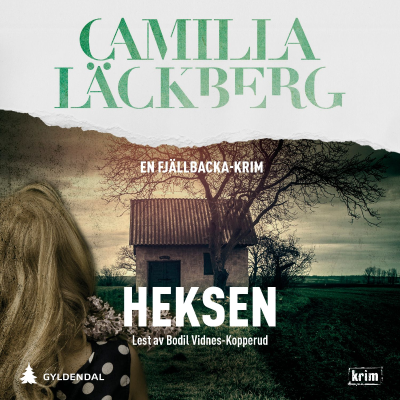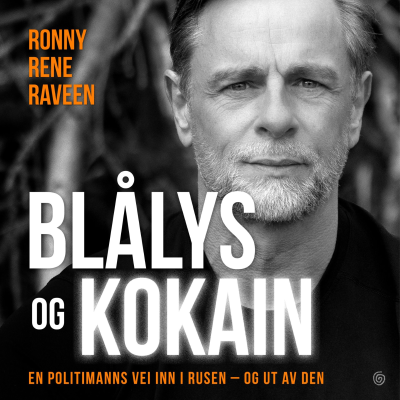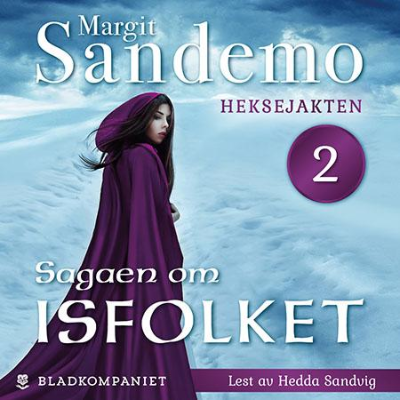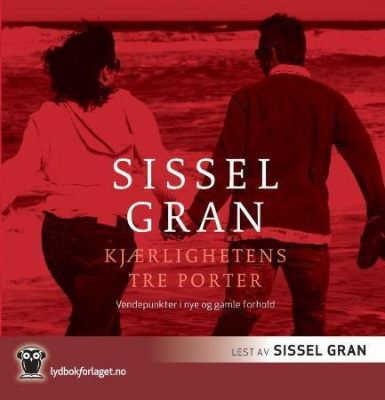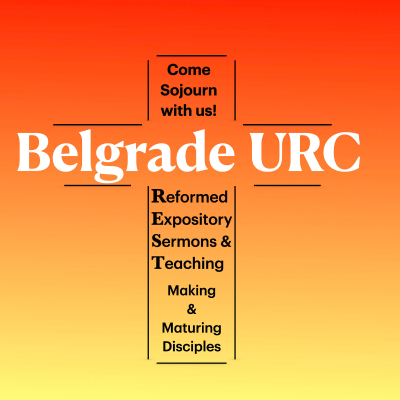
Reformed & Expository Preaching
engelsk
Historie & religion
Prøv gratis i 14 dager
99 kr / Måned etter prøveperioden.Avslutt når som helst.
- 20 timer lydbøker i måneden
- Eksklusive podkaster
- Gratis podkaster
Les mer Reformed & Expository Preaching
We are a Bible Believing Reformed church in the Bozeman, Belgrade area. Subscribe to our sermon feed or better yet, worship with us each Sunday! May the Lord’s blessing and peace be upon you.
Alle episoder
729 EpisoderMisery or Mercy? (Psalm 19:7-14; LD 2)
INTRODUCTION The Heidelberg Catechism teaches that the law of God reveals our sin and misery. This becomes even more disheartening when we see that by nature we hate God and our neighbor. This raises an honest and uncomfortable question: if God's law only exposes how badly we fall short, why would anyone want to study it? And how can Psalm 19 celebrate the law as life-giving when it seems to do nothing but condemn us? WHY CELEBRATE THE LAW? At first glance, the law of God seems like a setup for failure. The standard is total love for God and neighbor. This means we are not allowed a single distracting thought. There is a bar set that none of us consistently meet. Yet Psalm 19 describes the law as perfect, right, and pure, with benefits including a revived soul, wisdom for the simple, joy in the heart, and enlightened eyes. How do we hold both realities together? The key is understanding that the law here is not simply a list of commandments designed to expose our inadequacy. The Hebrew word Torah carries a broader meaning. Think of Torah as the Lord's instruction for life. When we study God's instruction, we are not just measuring ourselves against an impossible standard. Ironically, we are instructed in how to live. Life is not found in our obedience, but in Christ’s obedience. We live in the power and grace of God. The commands do reveal to us how we ought to live, but we must remember that we live in his promises rather than our perfect obedience. The celebration of the Torah is the celebration that we get to live for Christ, and in Christ. It is Christ who secures us. We have the joy of living as living sacrifices out of thanksgiving for him. WHY FEAR GOD? The phrase "fear of the Lord" can easily be misread as cowering before a tyrannical God who delights in punishing his people. But that misreads both the psalm and God’s character. The fear of the Lord is not a call to be terrified of God. Rather, it is honoring him, humbling oneself, and a right ordering of our relationship with God as Creator and Redeemer. God is not a distant sovereign looking for reasons to strike us down. Scripture consistently shows a God who warns before he acts. He is a God who is bigger than his people. His people cannot annul his purpose. He is not confined to a single land or place. We see this because He communes with his people and protects them even in exile. Christ weeps over Jerusalem. To fear God rightly is to recognize who he is and who we are: We are his creatures who have been redeemed. He is our God and redeemer. We revere his name accordingly. WHY DISCERN THE TRUTH? Psalm 19 closes not with confidence in our own faithfulness, but with a prayer of dependence. The Psalmist raises the question, “Who can discern his errors?" The question highlights the problem that we have. We are unable to clearly see all our sins. In fact, the prayer is the request that the Lord keep us back from willingly and joyfully rushing into sin. We do not want to be presumptuous and rush into sin. Discerning the truth means coming before God honestly. We are continually asking him to search us, convict us, and keep us from the sins that would have dominion over us. The psalm ends not with a pledge of personal grin-and-bear-it resolve, but with a cry: "Let the words of my mouth and the meditation of my heart be acceptable in your sight, O Lord, my rock and my redeemer." Discernment flows from dependence. The goal is not moral self-improvement but a life continually oriented toward the God who has redeemed us. CONCLUSION The catechism is correct to say that the law shows us our sin and misery. But it does not leave us in misery. Psalm 19 invites us to see the law as a gift from a God who loves us enough to give us his instruction. He is gracious enough to keep us even when we fail to keep his law. We must remember our need for our redeemer. We must also remember we are called to live for our redeemer. It is by God’s grace, his power, and mercy that we will prevail in him.
Mordecai's Ironic Reward (Esther 6:1-14)
Introduction The book of Esther presents a seemingly impossible situation: God's people face annihilation, Persian decrees cannot be overturned, and God appears to be completely silent. We might expect a burning bush, ten plagues, or some dramatic miraculous intervention. We would expect that God is going to act in a dramatic and certain way. Instead, the Lord works through something far more ordinary. He works through the boredom of insomnia. His solution to cure the insomnia is to have Persia’s decrees read to him. This arbitrary moment changes the course of history and shows that Persia’s decrees will not stand. The Providential Problem Esther is caught between two unmovable Persian decrees. There is one forbidding wives from disrespecting their husbands. This was sent out to all the provinces. There is another decree that calls for the annihilation, full extermination of the Jewish people in eleven months. This goes all the way back to Amalek trying to conquer Israel. The messianic line itself is on the verge of being wiped out. Yet God's answer to this crisis is not a miracle, but insomnia. This seems absurd. The Lord parted the sea for Israel. He sent the 10 plagues. He made a donkey talk. Now, the Lord is working through a sleepless night? Well, the king is reminded that Mordecai saved his life. He also knows that Mordecai has not been rewarded for his deed. The sleepless night is interrupted by the morning and a man with an urgent request. The King's Query As the king searches for a way to honor Mordecai, Haman arrives at the palace. Haman has a spring in his step. He is going to overturn history and make things right. He is going to kill Saul’s descendant. His wife and friends came up with the plan. He just needs to manipulate the king a little bit. The king notices that someone is outside and wants to know who it is. He learns that it is Haman. He invites Haman into the room, and before Haman can speak, the king asks him a question: what should be done for the man the king desires to honor? Haman, blinded by his own pride, assumes the king must mean him. He wants it to be public that he is significant in this kingdom. The best thing would be to have Mordecai sing Haman’s praises before Mordecai is exalted on the pole. So Haman gives his answer. He wants to be paraded around the city. He wants the royal robes on him. He wants to be on a royal horse. The trap is sprung by Haman's own mouth. The king tells him to do exactly that, but for Mordecai the Jew. The man who wrote the decree to exterminate the Jewish people is now forced to parade his nemesis through the streets while shouting out Mordecai’s honor for all of Susa to hear. God is not sending a prophet. He is using Haman's own arrogance to proclaim the triumph of the messianic line. God’s decree will stand. His passive power is greater than the serpent’s scheming. Haman's Horror Haman rushes home in shame, and the advisors who once fueled his confidence now deliver a devastating verdict: Haman will not trample the serpent seed. The Lord does not need to use plagues to protect his people and undo Persia’s decree. He simply needs to inflict a restless night. Haman must come to grips with the fact that his wife cannot advise him out of this predicament. Before Haman can even process this prophetic warning, the king's servants arrive to escort him to Esther's banquet. The narrative leaves us on a chilling cliffhanger, but the message is already clear. Unlike the unstable Persian king who regretted sending away Vashti, God does not reverse his decrees. The seed of the serpent will not stand. The messianic line will not be exterminated. And Haman, like Amalek before him, is running out of time. God’s promise is real. God is not manipulated by his advisers. Conclusion The book of Esther is a book criticized because God is silent. However, God is not passive. God is active in his silence. A night that seems arbitrary is all God needs to save his people. He is working through the most mundane details of human life to ensure that his promises cannot fail. The decrees of Persia, for all their pomp, and certain decrees do not veto God’s will. The Lord promised to conquer death, and so he did in Christ, as Christ has been raised triumphantly from the grave.
The Conflict Zone: Walking by the Spirit vs. the Flesh (Galatians 5) | Devoted to God Series (Chapter 5)
In chapter 5 of Sinclair Ferguson's "Devoted to God," we confront an unavoidable reality: the Christian life is a battlefield. The moment you became a Christian, you stepped into a war zone where the flesh and the Spirit are locked in mortal combat for your soul. Paul's command in Galatians 5 is both a promise and a call to action: "Walk by the Spirit, and you will not gratify the desires of the flesh." This isn't about trying harder in your own strength. Christian holiness is rooted in what God has already done through Jesus Christ and the gift of the Holy Spirit. Ferguson helps us understand that we live with a foot in two ages. We live in the old age dominated by flesh, sin, and death, and the new age dominated by the Spirit, grace, and life. We explore the biblical pattern of indicative (what God has done) leading to imperative (how we're called to live), and discover five practical principles. This is a battle, but it's one we fight as wounded soldiers, encouraging each other onward and upward, always finding our resources in Christ.
Comforted or Controlled? (John 10:28, 29; LD 1)
Introduction Most things that bring us comfort are only appropriate in proper situations. For instance, a warm blanket, a favorite flannel shirt, a pair of pajamas. Each has its place. You do not wear a blanket or pajamas in public settings. You do not wear an old comfy flannel shirt to a wedding. But the Heidelberg Catechism opens with a striking claim: that there is a single comfort appropriate in every circumstance. In fact, this is a single comfort in life and in death. This raises an honest question: can any comfort truly be that universal? So we look at the claim of Heidelberg Catechism Question and Answer 1. What is our ONLY comfort in life and in death? "I Give Them..” At first glance, Christ's claim to give eternal life sounds more like an imposition than a comfort. If it's not something we opt into, is it really a gift? To answer this, the catechism points us to a hard truth: we are not neutral recipients. Like those enslaved by debt or victims of war, we are slaves. We are either slaves of sin or slaves of righteousness. We are slaves. (Romans 6:18) The catechism reminds us that Christ is a faithful savior and not a tyrannical master. It's the portrait of a redeemer who pays the debt we couldn't pay and frees us from a master, the tyranny of the devil, who sought to destroy us. We learn that the Devil’s marketing pitch for Adam and Eve did not end well. It turns out that it is a good thing that Christ is overbearing, that he overwhelms us with His grace, as He gives us eternal life. This is the gift that we do not naturally want, but the gift that we need to live life to the fullest in this age. Truly, living life for Christ is the highest and greatest thing we can do rather than pursuing our own independence. "They Will Never Perish" This promise seems false. We go to Christian funerals, which means that Christians do die. Is Christ overpromising and underdelivering? When we look deeper into Scripture, we see that "perish" implies something deeper than a mere physical death. In Mark 1:24, Christ encounters demons. They cry out, inquiring if Christ is going to destroy them/perish them. To perish is to be undone, destroyed, stripped of your identity and purpose. It is much more than death. What Christ promises is that the forces that assemble against his people will not succeed. We think of our sin or the sins that tempt us outside of us. We think of Satan and his satanic army. We think of any influence that pulls us from Christ. The assurance is that we will not be undone or overcome. We will never perish. "No One Can Snatch Them” We hear the promise that he knows all the numbers of the hair on our heads. This might sound creepy or overbearing. But when we read this statement in light of Christ as faithful Shepherd, it becomes something else entirely: an assurance that nothing in our lives escapes his notice or his care. He is not the hired hand who flees when the wolf appears. He is the Shepherd who lays down his life for the sheep. The high priestly prayer in John 17 reminds us that he intercedes on behalf of his people. The fourth servant song promises that: “yet he bore the sin of many, and makes intercession for the transgressors.” So when Christ promises that no one will snatch them out of the Father’s hand, he is assuring us no one will seize us from our shepherd. The "snatching" language describes a forcible seizure against one's will. Christ's answer is that even this cannot prevail. The same one who prayed for his disciples on the eve of the cross still intercedes for those who believe through their word, two thousand years later. We cannot see Christ as a creepy stalker. Rather, we need to see him as the empowering savior who protects his people. He does not empower us to live for ourselves, but to live for him. It is only as we live in communion with our Savior that we truly have life. Conclusion So, can there be only one comfort that is appropriate in every situation, season, and circumstance? Yes! The catechism's opening answer assures us of our value. Our value doesn't rest in our accomplishments, our reputation, or our self-determination. It rests on the fact that we bear the image of God. Our value rests in the fact that Christ has redeemed us. Our joy is living as slaves of righteousness as we walk in the Holy Spirit. We have been redeemed by Christ. The communion we once pushed away has been restored because the Good Shepherd sought us. He shepherds us through this life, through death itself, and into the age to come. The comfort of belonging to Christ isn't a soft sentiment for easy days. It is the one comfort sturdy enough for every circumstance because his sheep will not be undone. His sheep will never perish. His sheep will never be snatched. Let us proceed in the confidence that our Lord is our definitive redeemer.
Procrastinator or Strategic Planner?(Esther 5:1-14)
Introduction The book of Esther is a story of wonderful storytelling. It has drama and characters that operate in the grey. The assurance is that even when God sends his B team, his promises do not fall flat. As we enter chapter 5, we meet Esther in a position of desperate urgency: the Jewish people face annihilation, and the queen herself has called a three-day fast on her behalf. We were left hanging with a question. Was Esther seeking to save her own life, or was she genuinely turning to God for wisdom and divine direction? Esther has been rather passive. She has been instructed and silent. When she speaks, she seems conflicted. How is the Lord going to win his cosmic battle against the serpent with these people? We need the precision of the Navy Seals at this point, and not indifferent people who have compromised their moral integrity. Esther’s Banquet: A Plan Put Into Motion (vv. 1–2) Notice how deliberately the narrative slows as Esther prepares to act. The text does not simply say, "On the third day, Esther went to the king." Instead, every detail is described with weight and intention: Esther puts on her royal garments, walks to the inner court, and positions herself where the king can see her. This pacing is intentional. The intention is to slow down the action. It makes the reader feel the weight of the moment. It also builds suspense. Will the king let her speak, or will she be the first to be executed? Her dawning the royal garb pays off. The king has not called for her in 30 days, but the king still cares for her. He does not simply ask what she wants, but he asks, “What seems to be troubling you?” There is compassion and concern for Esther’s well-being. This is only after the king invites her into his presence and extends the scepter to grant her audience. She is addressed as Queen Esther. Now she has the chance to act as queen. Esther's Request: The Banquet and the Strategy (vv. 3–8) When the king offers Esther up to half his kingdom, her request is surprisingly modest. In fact, it is dangerous. She does not ask for the Jews to be saved, nor seek a place of refuge for the Jewish people. Instead, she invites the king to a banquet with Haman. This seems like a missed opportunity to the pragmatic observer. Why not act now, while the iron is hot? But this is precisely where Esther's wisdom shines. She is not rushing. She is calculating. The invitation demonstrates that Esther is moving the king where she wants him. She is also able to size up Haman. Esther might perceive something in Haman that we did not perceive. Most likely, Esther is using this occasion to study him. She needs to see him face-to-face. When the king again offers her up to half his kingdom at the banquet, and she asks for a second banquet, she is not stalling out of fear. She is pumping up Haman’s ego. She also knows that in this kingdom, the king is easily manipulated by his advisers. Persia prides itself on the fact that its decrees are never overturned. Esther is thinking on a deeper level. She is an instrument God is using, and we need to see the wisdom God has brought to her attention after three days of fasting. Esther’s Challenge: Haman's Pride and the Cosmic Battle The scene shifts to Haman, who leaves the first banquet elated. He has everything: wealth, sons, prestige, the king's signet ring. He is on top of the world because not only did he have an exclusive banquet today, but another one tomorrow. This man has it all. It is rather funny that he is threatened by a man who cannot meet with the king and has to send secret messages to his cousin, who is currently the queen. Haman cannot deal with Mordaci showing him such disrespect. He calls his advisors together and his wife. His wife hatches a plan in the midst of his advisors. Her plan for Haman is to build a pole 50 cubits high (roughly 70 feet, an exaggerated height) and impale Mordecai on it before the next banquet. The exaggeration in the text is not careless hyperbole. We need to clearly see that this is a literary device that communicates the depth of Haman's hatred and the grotesque extremity of his anger. Clearly, this is not a personal grudge, but a cosmic battle that is taking shape. We might be overwhelmed. However, the dark humor of the narrative is impossible to miss. A kingdom that issued a decree declaring that no woman would dominate its men is now being led around by a queen who is dictating two banquets. Haman, the second most powerful man in the empire, receives his orders from his wife. The decrees of Persia, written in stone, are not being followed. Remember how this decree went out to every man in their own language? Well, the seed of the serpent might declare it victory, but clearly the Lord is subtly communicating that the serpent seed might say check, but it cannot say checkmate. The Lord’s decrees stand. Where are Persia’s decrees today? Conclusion The deeper question driving the Book of Esther is not merely whether the Jewish people will survive. It is whether the Lord will triumph over the seed of the serpent. It is not enough that God's people simply live, but they need to triumph. If Esther had acted purely out of pragmatism at the first banquet, the people might have been preserved, but the Lord would have lost the cosmic war. The story, at this stage, is assuring us: God is still at work. He is silent, but his decree will stand. How clearly we see this as Christ has been raised from the dead. Let us proceed with confidence that our Lord is a shield and defender. He will finish what he started because His decrees stand. Let that be our confidence as we walk in Christ.
Velg abonnementet ditt
Premium
20 timer lydbøker
Eksklusive podkaster
Gratis podkaster
Avslutt når som helst
Prøv gratis i 14 dager
Deretter 99 kr / måned
Premium Plus
100 timer lydbøker
Eksklusive podkaster
Gratis podkaster
Avslutt når som helst
Prøv gratis i 14 dager
Deretter 169 kr / måned
Prøv gratis i 14 dager. 99 kr / Måned etter prøveperioden. Avslutt når som helst.


































